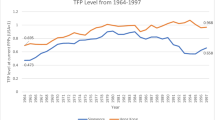Conclusion
Weber almost anticipated the idea of the high-level equilibrium trap. Speaking about bureaucracy, he observed that “as always in the area of'techniques' ... advance proceeded most slowly wherever older structural forms were in their own way technically highly developed and functionally particularly well-developed to the requirements at hand.”Footnote 1 It is a pity that he did not utilize this insight to analyze what he called the “increasing stability of the economic situation under conditions of the economically self-sufficient and socially homogenously composed world-empire of China.”Footnote 2
Instead he pursued the idea that the absence of self-generated capitalism in China was due “basically” to “the lack of a particular mentality.”Footnote 3 This inappropriate mentality had several aspects. One was the “personalist principle.”Footnote 4 Others are listed in a catalog of alleged traits of personality taken largely from Arthur Smith's Chinese Characteristics.Footnote 5 They include stolidity, patience, dislike of novelty, absence of curiosity, credulity, and a general distrust of and dishonesty towards all. Having acknowledged China's “considerable technical endowments” and ‘“inventions’” (Weber's own quotation marks),Footnote 6 he argued that “the magic stereotyping of technology and economics... completely precluded the advent of indigenous modern enterprises in communication and industry.”Footnote 7 The Chinese world, in a famous phrase, was “a magic garden” in which “the ethical rationality of the miracle [was] out of the question.”Footnote 8
Certain points of detail may be disputed. Thus the miracles attributed to the piety of sons and the fidelity of widows were entirely ethically rational.Footnote 9 But the crucial fact is that this conception of the problem led Weber in practice to place an excessive faith in the explanatory power of an analysis of ideas considered in relative isolation from their socioeconomic context. It probably also weakened his sense of the need to sort out more systematically the somewhat internally contradictory opinions that he held on the more specifically economic aspects of Chinese society.
Similar content being viewed by others
Notes
ES, 987.
ROC, 137.
ROC, 104.
ROC, 236.
ROC, 231–32. Cp. ibid. 235-39. See Arthur Smith, Chinese Characteristics (New York: Reveil, 1900).
ROC, 199.
ROC, 199.
ROC, 200.
Mark Elvin, “State Sponsorship of Private Virtue in Imperial China,” Past and Present (forthcoming, autumn, 1984).
Author information
Authors and Affiliations
Rights and permissions
About this article
Cite this article
Elvin, M. Why China failed to create an endogenous industrial capitalism. Theor Soc 13, 379–391 (1984). https://doi.org/10.1007/BF00213231
Issue Date:
DOI: https://doi.org/10.1007/BF00213231




